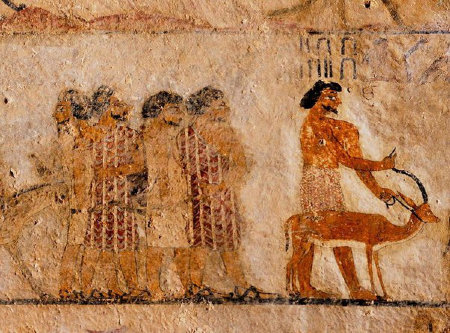We ask you, humbly: don't scroll away.
Hi readers, it seems you use Catholic Online a lot; that's great! It's a little awkward to ask, but we need your help. If you have already donated, we sincerely thank you. We're not salespeople, but we depend on donations averaging $14.76 and fewer than 1% of readers give. If you donate just $5.00, the price of your coffee, Catholic Online School could keep thriving. Thank you.Help Now >
St. Cecilia
Facts
Patron: of musicians
Birth: 2nd century
Death: 3rd century
Author and Publisher - Catholic Online
Printable Catholic Saints PDFs
Shop St. Cecilia

In the fourth century a Greek religious romance on the Loves of Cecilia and Valerian was written in glorification of virginal life with the purpose of taking the place of then-popular sensual romances.
Consequently, until better evidence is produced, we must conclude that St. Cecilia was not known or venerated in Rome until about the time when Pope Gelasius (496) introduced her name into his Sacramentary.
It is said that there was a church dedicated to St. Cecilia in Rome in the fifth century, in which Pope Symmachus held a council in 500.
The story of St. Cecilia is not without beauty or merit. She is said to have been quite close to God and prayed often:
In the city of Rome there was a virgin named Cecilia, who came from an extremely rich family and was given in marriage to a youth named Valerian. She wore sackcloth next to her skin, fasted, and invoked the saints, angels, and virgins, beseeching them to guard her virginity
During her wedding ceremony she was said to have sung in her heart to God and before the consummation of her nuptials, she told her husband she had taken a vow of virginity and had an angel protecting her. Valerian asked to see the angel as proof, and Cecilia told him he would have eyes to see once he traveled to the third milestone on the Via Appia (Appian Way) and was baptized by Pope Urbanus.
Following his baptism, Valerian returned to his wife and found an angel at her side. The angel then crowned Cecilia with a chaplet of rose and lily and when Valerian's brother, Tibertius, heard of the angel and his brother's baptism, he also was baptized and together the brothers dedicated their lives to burying the saints who were murdered each day by the prefect of the city, Turcius Almachius.
Both brothers were eventually arrested and brought before the prefect where they were executed after they refused to offer a sacrifice to the gods.
As her husband and brother-in-law buried the dead, St. Cecilia spent her time preaching and in her lifetime was able to convert over four hundred people, most of whom were baptized by Pope Urban.
Cecilia was later arrested and condemned to be suffocated in the baths. She was shut in for one night and one day, as fires were heaped up and stoked to a terrifying heat - but Cecilia did not even sweat.
When Almachius heard this, he sent an executioner to cut off her head in the baths.
The executioner struck her three times but was unable to decapitate her so he left her bleeding and she lived for three days. Crowds came to her and collected her blood while she preached to them or prayed. On the third day she died and was buried by Pope Urban and his deacons.
St. Cecilia is regarded as the patroness of music, because she heard heavenly music in her heart when she was married, and is represented in art with an organ or organ-pipes in her hand.
Officials exhumed her body in 1599 and found her to be incorrupt, the first of all incurrupt saints. She was draped in a silk veil and wore a gold embroidered dress. Officials only looked through the veil in an act of holy reverence and made no further examinations. They also reported a "mysterious and delightful flower-like odor which proceeded from the coffin."
St. Cecilia's remains were transferred to Cecilia's titular church in Trastevere and placed under the high altar.
In 1599 Cardinal Paolo Emilio Sfondrati, nephew of Pope Gregory XIV, rebuilt the church of St. Cecilia.
Join the Movement
When you sign up below, you don't just join an email list - you're joining an entire movement for Free world class Catholic education.
-

-
Mysteries of the Rosary
-
St. Faustina Kowalska
-
Litany of the Blessed Virgin Mary
-
Saint of the Day for Wednesday, Oct 4th, 2023
-
Popular Saints
-
St. Francis of Assisi
-
Bible
-
Female / Women Saints
-
7 Morning Prayers you need to get your day started with God
-
Litany of the Blessed Virgin Mary
Biblical Lost Alphabet Traced Back to Ancient Canaanite Civilization
-

What are the Health Benefits of Grass-Fed Beef for Your Body and Mind?
-

Rise Above Poverty is Empowering Children and Families Through Education and Compassion
-
Artists and Leaders Rally to Preserve the Traditional Latin Mass
-
Republicans Demand Answers Over Army Training Slide Labeling Pro-Life Groups as Terrorist Threats
Daily Catholic
 Daily Readings for Wednesday, July 24, 2024
Daily Readings for Wednesday, July 24, 2024 St. John Boste: Saint of the Day for Wednesday, July 24, 2024
St. John Boste: Saint of the Day for Wednesday, July 24, 2024 Prayer for Travelers: Prayer of the Day for Wednesday, July 24, 2024
Prayer for Travelers: Prayer of the Day for Wednesday, July 24, 2024- Daily Readings for Tuesday, July 23, 2024
- St. Bridget of Sweden: Saint of the Day for Tuesday, July 23, 2024
- A Child's Prayer to Mary: Prayer of the Day for Tuesday, July 23, 2024
![]()
Copyright 2024 Catholic Online. All materials contained on this site, whether written, audible or visual are the exclusive property of Catholic Online and are protected under U.S. and International copyright laws, © Copyright 2024 Catholic Online. Any unauthorized use, without prior written consent of Catholic Online is strictly forbidden and prohibited.
Catholic Online is a Project of Your Catholic Voice Foundation, a Not-for-Profit Corporation. Your Catholic Voice Foundation has been granted a recognition of tax exemption under Section 501(c)(3) of the Internal Revenue Code. Federal Tax Identification Number: 81-0596847. Your gift is tax-deductible as allowed by law.











 Daily Readings for Wednesday, July 24, 2024
Daily Readings for Wednesday, July 24, 2024 St. John Boste: Saint of the Day for Wednesday, July 24, 2024
St. John Boste: Saint of the Day for Wednesday, July 24, 2024 Prayer for Travelers: Prayer of the Day for Wednesday, July 24, 2024
Prayer for Travelers: Prayer of the Day for Wednesday, July 24, 2024

